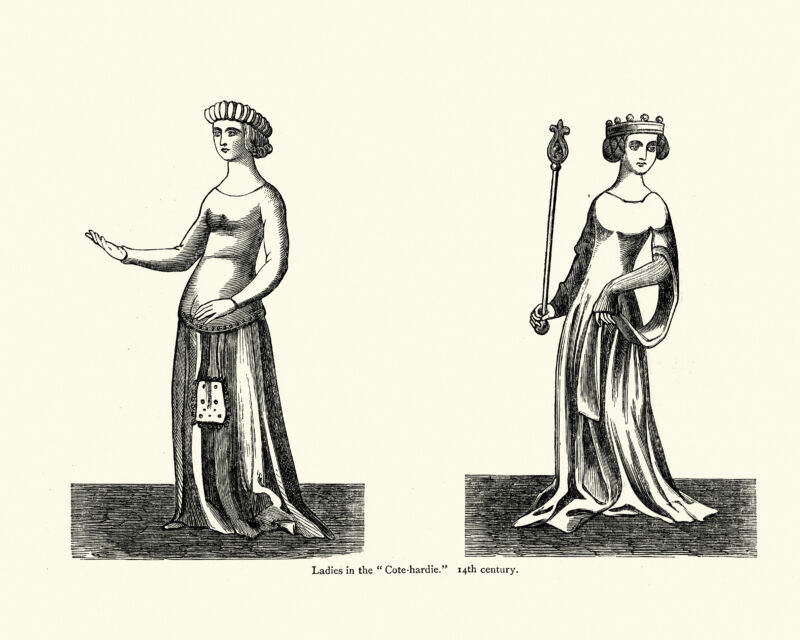What medieval attitudes tell us about our evolving views of sex

Enlarge / Vintage illustration of medieval women wearing kirtles. A kirtle (sometimes called a cotte or cotehardie) is a garment that was worn by men and women in the Middle Ages. It eventually became a one-piece garment worn by women from the late Middle Ages into the Baroque period. (credit: duncan1890)
In the illuminating and entertaining blog Going Medieval, Eleanor Janega, a medievalist at the London School of Economics, upends prevalent misconceptions about medieval Europe. These misunderstandings include that people didn’t bathe (they did) and that these were the Dark Ages*. Her new book, The Once and Future Sex, is subtitled “Going Medieval on Women’s Roles in Society,” and that's exactly what she does—if by “going medieval” you intend the pop culture meaning of "dismembering in a barbaric manner" which, despite her protestations, you probably do.
Her main thrust, in the blog and in the book, is that it's easy and convenient for us to envision medieval times as being backward in every way because that makes modern times seem all that much more spectacular. But not only is this wrong, it's dangerous. Just because life is definitely better for women now than it was then, that doesn’t mean our current place in society is optimal or somehow destined. It's not.
Progress did not proceed in a straight arrow from bad times then to good times now. Maintaining that things were horrible then deludes us into thinking that they must be at their pinnacle now. Janega lays out this argument in the introduction and then spends the bulk of the text citing evidence to bolster it.
Read 13 remaining paragraphs | Comments
from Gaming & Culture – Ars Technica https://ift.tt/UfbIaW5